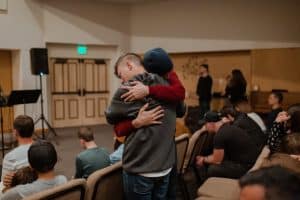We are all born for connection.
Finding balance in our relationships is already hard enough; but what happens when the very relationships that are supposed to love and nurture us; are in fact, toxic and harmful to our well-being?
Today, we have invited our dear member, Joycelyn Chieng, the Founder and Director of Transform PsyCare to come and share with us her knowledge and experiences working with Relational Trauma. Her journey to working with relational trauma started here:
“There are two parts of my story. Firstly, my personal experience growing up in the family with bouts of relational trauma, and then as an adult experiencing through one in a relationship. For many years, these experiences had a profound impact on my sense of self and relationships with others. I couldn’t be my authentic self and was preoccupied with various self-defence tactics to shield my wounds. This is draining as well as lonely.
After working through my relational traumas, I have found inner peace not only with myself but also with those around me. My desire to help more individuals go through similar transformations motivates me to work as a therapist for relational trauma.”
So…what is relational trauma and why should we even be talking about it?
What is Relational Trauma?
Did you know that “Trauma” comes from the Greek word meaning “wound“?
Many people often think of trauma as singular events that shouldn’t have happened but did, such as experiencing war, natural disasters or traffic accidents; but it can also be repeated events that should have happened but didn’t; leading to a cumulative impact over time.
The term “relational” simply means the trauma is interpersonal in nature and happened in the context of close relationships, whether it be with our parents, caregivers, siblings, peers or other loved ones.
Some examples of relational trauma include undergoing physical, emotional and/or sexual abuse, having neglectful or emotionally unavailable caretakers, parents who were inconsistent or failed to advocate for your needs, or even growing up with parents dealing with mental health issues.
As Joycelyn tries to explain the complicated nature of this type of trauma:
“Relational trauma is also known as interpersonal trauma. It happens when a person is constantly exposed to unhealthy dynamics, betrayal, manipulation, or other detrimental behaviours in relationships. This trauma is most commonly experienced inside family units, romantic relationships, close friendships, or other interpersonal connections. Key traits include recurrent exposure, negative emotional impacts, and a high degree of complexity.”
“In my practice, I often work with survivors of childhood relational trauma. Most individuals are aware that not having basic needs and/or being physically mistreated during childhood can result in trauma. It is also crucial to note that feeling humiliated, invalidated, rejected, and/or unable to rely on an adult on a consistent basis can cause significant trauma. This is because all of these things can be seen as a threat to survival. This has long-term biopsychosocial consequences for the survivors.”
Unfortunately, when a child is taught that abuse, neglect, enmeshment or abandonment are “normal“, this significantly impacts the way they view themselves, and also makes it more likely that they find relationships that repeat similar patterns in adulthood.
“Attachment wounds is an early form of relational trauma. A caring, predictable and consistent child-caregiver bond helps to establish a secure attachment style which aids healthy development, self-confidence, self-regulation, and a blueprint for engaging in other relationships.
When there is a disturbance in the child-caregiver link, such as improper responses to a baby’s distress, a lack of affection, abusive behaviour, or the caregiver’s absence, the child can have a traumatic experience. Trauma connected with this important bond can result in an insecure attachment style and a variety of problems ranging from poor social development to serious mental illness.
It’s also worth noting that adults who have experienced relational trauma might change their attachment style from secure to insecure as a result.
Adults with insecure attachment styles may find it difficult to quit a relationship, so they stay in detrimental ones for far too long. They may appear clingy, as if they are extremely worried that people would dislike them or leave them. Some adults find it difficult to grow emotionally close to their partners because intimacy is foreign to them. They might notice a pattern of unhealthy interpersonal dynamics.”
What are some signs and symptoms of relational trauma?
Because relational trauma is so complex in nature, there is no definite checklist of how it presents in any one person–many other factors are at play, including the intensity of the trauma, the duration of the exposure, and how often it occurred. Another consideration is whether there were any other supportive and satisfactory relationships around the individual at the time.
“It is not uncommon for us to encounter or witness ‘toxic,’ ‘gaslighting,’ or ‘narcissistic’ behaviours at some point in our lives, whether in our families, schools, workplaces, or social settings. We may develop relational trauma symptoms due to this. In some cases, we may be diagnosed with Complex Post-traumatic Stress Disorder (CPTSD), as defined by the WHO International Classification of Disease (ICD 11).”
Trauma is personal, and everyone reacts differently to it. While CPTSD is a possible outcome for someone who has suffered relational trauma, not everyone who has experienced relational trauma will be diagnosed with CPTSD.
In addition to PTSD symptoms like flashbacks, avoidance, increased emotional reactivity and negative beliefs about oneself, CPTSD also include symptoms like problems in affect regulation and difficulties in sustaining relationships with others.”
Here are some common signs and symptoms of relational trauma:
- Difficulties setting boundaries and saying “no”;
- A deep sense of mistrust in self and/or others;
- Feeling responsible for other people’s emotions;
- Feeling lonely, isolated, unsupported and disconnected from others;
- Difficulty in regulating emotions;
- Difficulty in expressing your true needs and wants;
- Overall sense of worthlessness.
Joycelyn adds:
“Survivors of relational trauma may suffer with issues such as trust, self-esteem, self-worth, and attachment difficulties. When we go deeper, we always find shame, grief, guilt and resentment underlying. Some choose to dissociate or numb themselves to avoid the overwhelming emotions.
Their friends and coworkers may find them sensitive or unpredictable as regulating emotions is challenging for them. They may believe that “I am on my own”, fearing that others cannot or will not help and it is shameful of them to ask.”
How do we begin to heal from relational trauma?
Given its far-reaching effects that can last a lifetime, it is important to seek help as soon as possible. This is where seeking the support and guidance of a professional counsellor can be valuable.
In terms of getting a diagnosis, Joycelyn shares:
“Currently, only a psychiatrist is qualified to diagnose a mental illness like CPTSD. However, do know that no medical diagnosis is required to seek counselling or psychotherapy treatment if relational trauma is stopping you from reaching your goals.”
Even if you aren’t able to receive a diagnosis, it doesn’t mean you can’t heal. Some good starting points include:
- Identifying your trauma responses and triggers (this can be with the help of a therapist!)
- Cultivating an environment that feels both physically and emotionally safe, such as building a support system with individuals that understand your trauma responses and with whom you can trust.
- Taking small steps in rebuilding your sense of self: actively seek out new experiences that help boost your self-esteem and confidence.
- Try your hand at mindfulness! There are tons of meditation apps to help you better regulate your emotions and improve self-awareness.
Here are some of Joycelyn’s tips:
“Many of my clients have recovered from trauma and blossomed into their most mature and true selves. As relational trauma is complicated and multi-layered, recovery will most likely require multi-dimensional work. There are attachment wounds and the need for relational healing, both of which are possible in a safe, supportive relationship with a trauma therapist.
Journalling may be a good starting point to expand your thoughts and feelings, as well as identify the patterns (or triggers). Stay curious and compassionate while you journal, as it is your map to healing.”
Relational trauma requires relational repair
Healing from relational trauma is multi-faceted; which includes working on multiple levels, including the cognitive, relational, somatic and emotional level.
Joycelyn supports her clients using a variety of approaches:
“When working with relational trauma survivors, a secure and supportive therapeutic relationship is essential. I assist them in emotional regulation, unpacking negative thoughts and feelings, and rebuilding a positive self-image. Eye-Movement Desensitization Reprocessing (EMDR) works well for processing traumatic experiences. If there are also unmet developmental needs, Ego-state therapy intervention works wonderfully for repairing attachment wounds.”
Finding a safe space matters too. At A Space Between, we currently have over 90 mental health professionals including psychologists, counsellors and life coaches who rent our therapy room located at Tanjong Pagar.
Part of the relational healing can be done with the help of a trained, trauma-informed therapist who genuinely wants the best for you. Don’t be afraid to ask for an introductory call so you can figure out if the therapist is the right fit for you!
For Joycelyn, she allows her personal story to act as a compass for her work with clients:
“I am a registered and certified counsellor and psychotherapist with over a decade of experience. I specialize in helping individuals with anxiety and unresolved trauma, supporting them in emotional regulation and interpersonal relationships. I offer personalized and evidence-based therapy in a safe, non-judgmental, collaborative, and supportive space. I help my clients resolve and integrate their emotions, beliefs, and physical sensations related to negative experiences that may be impacting their life.
I believe that life satisfaction starts with inner peace. Thus, I am dedicated to guiding my clients towards resilience, peace with themselves and others, and fulfilment.”
No longer letting fear guide you
And because we know healing is not a linear process, we have asked Joycelyn for her book recommendations and additional resources:
“If you want to learn more about this topic, please visit my website at https://transformpsycare.com/, which includes my blogs and social media links. If you enjoy reading, I recommend “In Sheep’s Clothing: Understanding and Dealing with Manipulative People” by George Simon and “If He’s So Great, Why Do I Feel So Bad?: Recognizing and Overcoming Subtle Abuse” by Avery Neal.”
The beauty about embarking on your healing journey is that you’ll come to learn so much about yourself and realise that you have so much love within you.
Wishing you the very best in your journey!
About Joycelyn Chieng
Joycelyn Chieng is a professional counsellor, psychotherapist and consultant who works with those dealing with trauma, anxiety, emotional regulation and interpersonal relationship issues. She is a professional counsellor, psychotherapist and consultant since 2011 with clinical experience working with people of different ages, diverse cultural backgrounds, walks of life and in various organisational settings. Her specialties include trauma, anxiety, emotional regulation and interpersonal relationship therapies. Use our therapist directory to connect with her or find a therapist that suits your needs and preferences.
Sources:
https://psychcentral.com/ptsd/what-is-relational-trauma
https://cptsdfoundation.org/2022/11/14/treating-complex-relational-trauma/

A dreamer whose go-to motto is “Follow Your Heart”, Charmaine is currently embarking on obtaining her Masters’ of Counselling, hoping to eventually make a full-time career in supporting others in their mental health journey. She has always been awed by the beauty of the human psyche and writing remains to be her favourite form of expression. She enjoys reading and writing about trauma, and would like to encapsulate the silver linings of what it means to be an imperfectly perfect human being in all her pieces.



